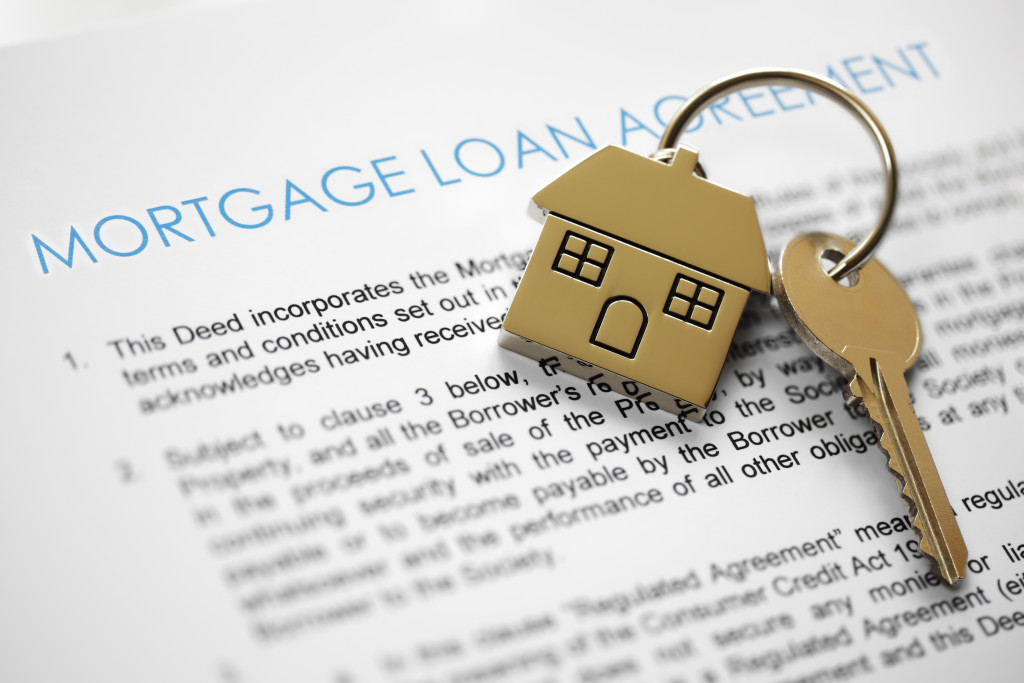The COVID-19 pandemic has devastated the economy not just in the United States, but all over the world. All industries, including housing, have seen a tremendous decline.
However, it has led to record-low mortgage rates. Many have taken advantage of the market and refinanced their mortgage, saving hundreds of dollars per month. More are thinking of heading toward the same path; they are shopping for the best mortgage rates around. Analysts say that mortgage rates may drop even lower in the future, although no one can say for sure where it is heading.
But, what exactly happened? Why did mortgage rates go down this year and what does the future hold for homeowners who are still paying off their mortgage?
COVID-19’s Effect on the Economy
When COVID-19 was declared a pandemic in March, many countries, including the United States, imposed a lockdown as an effort to stop the virus from spreading. Businesses had to shutter their doors and employees were asked to work from home.
The loss of profits has forced a lot of businesses to cut costs by letting go of their employees. Even with federal assistance, some businesses would not reopen again after the pandemic.
As a result, millions of Americans have lost their jobs. In May, the unemployment rate reached 14.7% — its highest level since the Great Depression.
This has caused households to become conscious of how they spend their money. Because jobs are no longer as secure as they were before the pandemic, many have decided to reduce their spending.
Bad Economy = Low Mortgage Rates
The U.S. economy is in bad shape. Although the economy has recovered slightly after restrictions have been lifted, it has not returned to its original state before COVID-19 emerged in China in late 2019.
And mortgage rates are intertwined with the performance of the economy.
When the economy is growing, people generate higher incomes, make more investments, and spend more money. The bright economic outlook also encourages prospective homeowners to take out loans and buy their dream house.
However, when the economy is in a decline, the opposite happens. Many lose their jobs, investments stall, and spending drops. It may discourage the public from taking out a mortgage, and they may suspend plans to buy a real estate property.

Stock Market in Distress
The state of the stock market has an effect on mortgage rates, too. When the stock market is struggling, as is happening now, investors shift their money to the U.S. Treasury bond market which they deem is more secure because it is issued by the government.
Treasury yields directly affect mortgage rates. When it goes up, interest rates rise. When it goes down, so do interest rates.
Other factors such as inflation, supply and demand, and the state of the housing market will also affect mortgage rates.
Present Mortgage Rates
Since the second quarter of 2020, the mortgage rate in the U. S. has been declining. As of Sept. 21, mortgage rates remain competitive at 2.938% for a fixed 30-year loan and 2.414% for a fixed 15-year loan.
Should you decide to take out a 30-year fixed mortgage rate today, you would only pay $418 per month in principal and interest for every $100,000 borrowed.
For comparison, a year ago, the 30-year fixed mortgage rate averaged 4.41%. At the end of February earlier this year, it was at 3.45%.
Will Mortgage Rates Remain Low?
Whether mortgage rates continue to go down in the coming weeks and months remains to be seen. You would have to watch the performance of the stock market and the economy — the two factors that led mortgage rates to its lowest levels ever — to know if the odds will continue to be on the side of homeowners.
However, those who plan to take out loans or refinance should make the decision sooner rather than later. Although there is no assurance that mortgage rates will remain low or will start to increase, Fanny Mae and Freddie Mac, two big players in the mortgage industry, are imposing a new fee that will take into effect starting Dec. 1.
It is called the “adverse market fee.” Its goal is to recover losses from defaults and other negative consequences of the pandemic.
Prospective homeowners will see the new fee reflected in their rate quotes any time soon. It could add a couple of hundred dollars per year or several thousand over time.
The decision to take out a loan right now or refinance your mortgage should be considered with care. Do not rush into it, even if the low mortgage rates is tempting. Weigh the pros and cons and shop around to find the best deals available to you.

